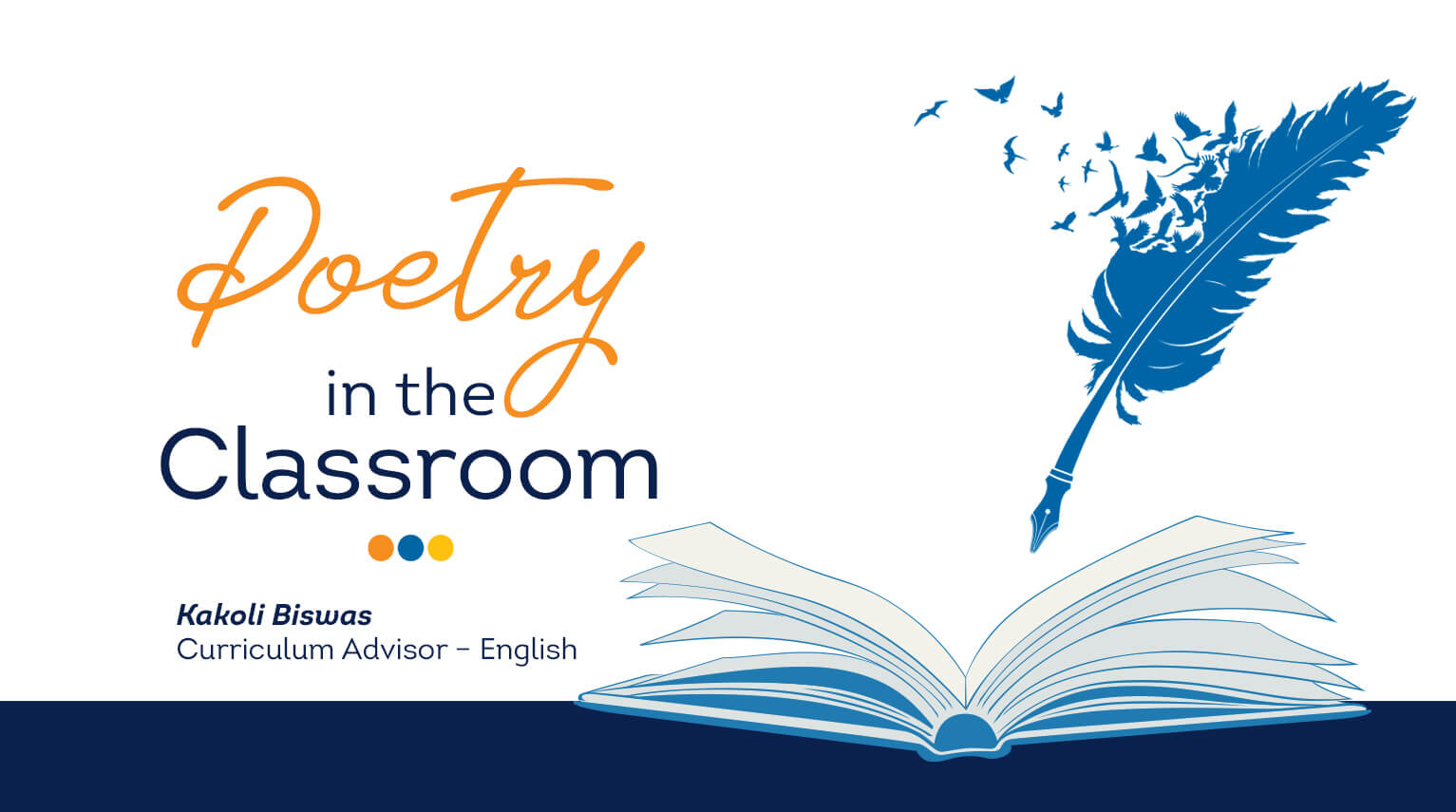News & Events / Poetry in the Classroom
category
KNIB
Poetry in the Classroom
Poetry is what in a poem makes you laugh, cry, prickle, be silent, makes your toe nails twinkle, makes you want to do this or that or nothing, makes you know that you are alone in the unknown world, that your bliss and suffering is forever shared and forever all your own. ― Dylan Thomas
This is probably why, it is important to introduce children to poetry while they are still at an impressionable age. Expression, rhythm and language can be used to refine the experiences that children have. Children should be shown the way to express themselves through different forms of art, poetry being one. Poetry also exposes us to socio-economic and socio-political influences on a poet, which greatly reflect the history of the times.
Learning poetry and eventually composing poetry enrich the language skills of children. It opens up their mind to the intricacies of language and emotions explored with its aid. Poetry is, after all, a means for communication and many children, while growing up, take recourse to this invaluable method to handle joy and sorrow. Thus, poetry breaks boundaries and helps to unite minds with a common goal and intent. It makes children resilient and more accepting of social changes and diversity of culture. Poetry, therefore, can create global citizens.
In the poetry class, children learn about the different poetic devices like metaphor, symbolism and imagery. The children can, in turn, use these devices to write about themselves, about joyous, humorous or painful experiences that they had not been able to share previously. The best part of writing poetry is that children are not bound by rules of grammar, punctuation and capitalization. Children can truly experience a kind of freedom rarely found in other genres of literature.
Loud reading of poems enhances auditory skills. It taps the potential of those children who are musically inclined and goes a long way in the use of multiple-intelligences in a classroom. Children with an innate sense of rhythm and sound and beats can put poems to music and present to the class or the school. This will surely take the study of poetry out of the text book and into a real and exciting world for them. This will be the stepping stone to composing lyrics which are nothing but poems. Poetry makes children think. Limitations of vocabulary never stand in the way of writing a poem. All that is required is a robust imagination and an insatiable urge to be heard.
Allowing children to analyze poetry and speak about it enhances speaking and listening skills. It also lends an excellent opportunity for the teacher to facilitate an atmosphere of debate and discussion. Those children who are usually shy or shun public speaking may feel the urge to voice their opinion on a poem of their choice. Reading their original poems aloud is a surefire way to break the shackles of fear that bind a lot of children. Children learn to trust their peers and teachers. They also get a tremendous boost of self-confidence which is crucial to the development of their personality.
While planning the curriculum, it is important for teachers to look back on past experiences and understand which poems appealed to most children of a certain age. The purpose of teaching poetry will be defeated if we teach only what we like and not what the children want to learn. The poem should make sense to the child who is reading it. There is a time for everything. Children need the freedom to explore at their own pace and go after what their young hearts take a fancy to. The guidance of the teacher is priceless at this point. Guiding, and not controlling, is what will attract children to learning and enlighten them.
The magic of poetry can transform children and adults too. We should use this magic in our classrooms and effortlessly bring about a change that will make a difference in their lives and the world at large.
As I child, I grew up in Calcutta (now Kolkata), West Bengal. One October, on returning to school after the long Durga Puja vacation, our English teacher introduced us to Keats’ To Autumn. I remember, the long rays of the autumn sun slipping lazily into our classroom as we read
“Seasons of mists and mellow fruitfulness,
Close bosom-friend of the maturing sun
Conspiring with him how to load and bless
With fruit the vines that round the thatch-eves run;”
Calcutta would manage to get a chill in the air in October back in those days, and as we delved into this poem, I could see the mist and smell the ripe, sweet fruits.
When I read
“Thee sitting careless on a granary floor,
Thy hair soft-lifted by the winnowing wind;
Or on a half-reap’d furrow sound asleep,
Drows’d with the fume of poppies,”
I loved to imagine myself as this embodiment of autumn. I suppose my love for Keats and his poetry began with this divine ode and inspired me to study English Literature later in life. The magic had caught on!
Kakoli Biswas
Curriculum Advisor – EnglishThe Brigade Schools
